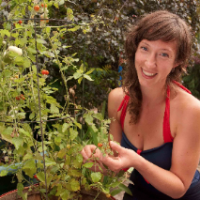Kate Leinweber, B.Sc R.H.N.
Why is it important for me to ‘consciously’ chew my food?
Improper chewing can lead to many problems in the body, such as:
- Gas/ Bloating
- Indigestion/ Heartburn
- Poor absorption
- Underactive Stomach/ Low HCl
- Overeating
The Rhythm and Pulse of Digestion
The pace at which we chew sets the rhythm for the rest of our digestion. If we just shovel food into our mouths and get it down the hatch as quickly as we can, this trend will continue right through our whole digestive tract. If our food is passing quickly through our digestive tract, there is less time for our system to absorb the nutrients present in our food. The rhythm, in the case of our digestive system, is called peristalsis. Peristalsis is initiated once the food from your mouth starts to move towards your stomach from the esophagus to the anus. This rhythmic movement mixes food with hydrochloric acid (HCl) and digestive enzymes ensuring maximum surface area of food is exposed to enzymes so that food is broken down. When food moves slowly through the intestines it has a good transit time for nutrients to be absorbed. Ever notice that you have a pulse in your belly? Well that is blood flow to absorb nutrients from your food.
The Journey
Starting at the mouth, without chewing, it would be nearly, if not, impossible to swallow. It is the initial method of breaking down our food. Carbohydrates are digested primarily in the mouth. Salivary amylase is produced in the mouth and is the primary enzyme of carbohydrate break down. The more we can mechanically break down our food in our mouth, the easier it is for our stomach to break down the food. Lets remember our poor stomach has no teeth.
The stomach is a firey acidic environment where food is churned and broken down. It has very little to do with carbohydrate digestion (so it was a good thing you chewed and produced lots of saliva!). Undigested carbohydrates are the source of fuel for bad bacteria in our gut that create the uncomfortable side-effects of gas production. The more efficiently food is chewed and mixed with saliva the less likely you are to experience gas and bloating. Chewing stimulates the production of HCl, and without that protein digestion could not occur. Our immune system depends on the acidity of HCl to kill many of the pathogens we ingest before they can make us sick.
Then food moves through the small intestine where fat digestion occurs and most nutrients are absorbed. If food was chewed properly there is a low chance of gas production or support for Candida overgrowth since the carbohydrates are already broken down. Enzymes upon enzymes are produced by the liver, pancreas and cells of the intestines to break food into smaller and smaller pieces until they can be transported to the blood stream.
The large intestine is where bacteria will degrade any left over food; usually fiber. Their byproducts are B vitamins, Vitamin K, and other immune supporting molecules. Remember that if you didn’t chew your food properly a byproduct can be Gas! Water is absorbed from food and any garbage that needs to be eliminated is done so with the Beat and the Pulse of our digestion: Peristalsis.
The Art
Proper chewing helps to prevent overeating. If we take our food in faster than our stomach can talk to our brain, the stomach will not be able to communicate it is full until after it is too full! Taking the time to slow down and enjoy a meal will provide a greater sense of satiety. Also, having food in our mouths longer helps us to realize the quality of food going down the hatch. Often, foods we think we enjoy don’t seem as desirable once they are chewed thoroughly, particularly in the case of processed foods and foods with synthetic flavors and/or colors.
It is important to remember food is one of life’s greatest gifts. We can enjoy food every day! Try to enjoy chewing 30 – 50 times per bite. Sometimes it helps to put the fork/spoon/chopsicks down between bites. Try to really taste your food. Enjoy it and let it nourish you.






Read 5 comments and reply